MIRED IN POVERTY OP-ED
If Malawi wants to get its economy going, its politicians and bureaucrats must lighten their grip
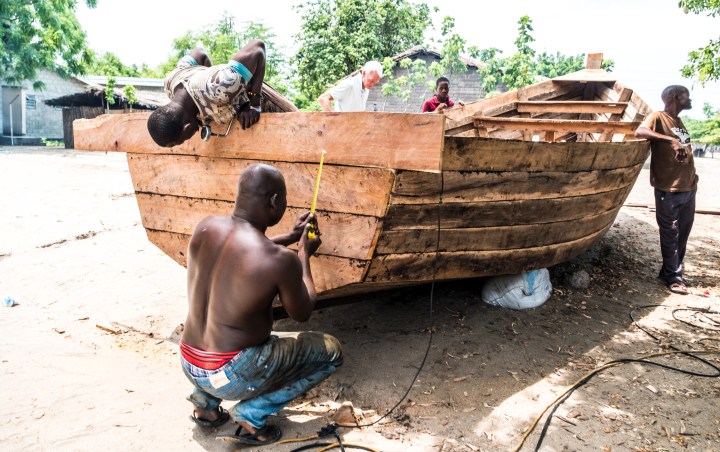
Malawians are nearly 30 times poorer than the average global citizen, an astonishing statistic when one contemplates its development advantages – a lake covering one quarter of its total area, and rich agricultural land.
Malawi is stuck. Among the five poorest countries at independence, in 2021 it was ranked second from the bottom globally.
Its vital statistics read like a bad day on the Somme.
Currently per capita income is $390, a quarter of the sub-Saharan average, itself seven times less than the global average. Malawians were very poor at independence in 1964, their average income just 5% of the global average; today they have unimaginably slipped further backwards, to a paltry 3.5%.
Put differently, Malawians are nearly 30 times poorer than the average global citizen, an astonishing statistic when one contemplates its development advantages (a lake covering one quarter of its total area, and rich agricultural land) and how well we understand development choices, challenges and options by now.
Following independence, Malawi’s growth patterns initially tracked those of sub-Saharan Africa, increasing at 3.7% annually. Since 1980, however, it started to fall behind the rest of the continent, by then hardly a stellar performer.
Malawi’s real per capita GDP grew at an average of just 1.5%, for example, between 1995 and 2015, well below the 2.7% average in non-resource-rich African economies.
There are few countries as poor which are not in war. At least Malawi has that going for it. To add insult to injury, Malawi has remained vulnerable to episodic financial crises, characterised by balance-of-payment issues, forex unavailability, rising inflation, high debt levels, and a collapse in growth rates.
Why is Malawi so poor, and why the recurrent tendency to crisis and constant slipping further backwards?
This is a result of many factors, of course.
Read in Daily Maverick: “Malawi at risk of food emergency amid recurrent weather shocks”
Many Malawians emphasise a combination of the poor colonial inheritance, being landlocked, poverty, and unfavourable terms of trade. Others would prefer to point to the harsh regime of Kamuzu (Hastings) Banda, the Scottish-educated authoritarian who ran the country with an iron fist until the advent of multipartyism in 1994 – though Malawians are divided in their loyalty over the legacy of a man who referred to his own people as “children in politics”.
Even though things started to fall apart during Banda’s rule, especially by the late 1980s, forcing the arrival of the World Bank and imposition of a series of pro-market reforms, and growth was low, he was feared and, as a consequence, remains revered. As Dr Banda put it in 1966: “If I am a dictator, it is because my people want me to be. I am a dictator of the people, by the people and for the people.”
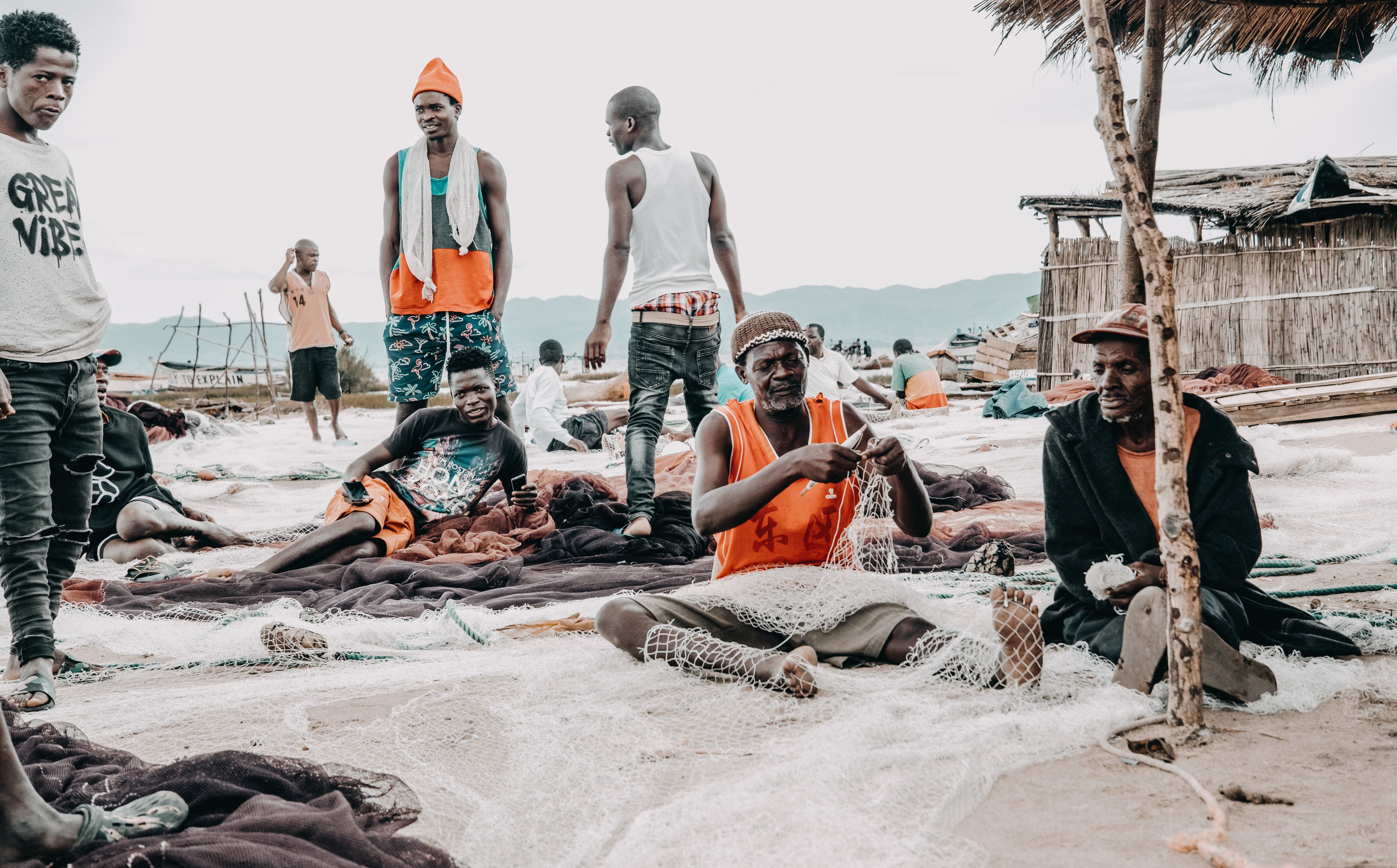
Malawi’s population has increased from four million at independence to 20 million today and is expected to double again by 2050. Managing resources is a key part of tackling poverty. (Photo: Richard Harper)
Banda’s brand of big-man politics highlights a consistent element over the past six decades: the poor choices made by leadership and the corrosive nature of governance. It’s not that Malawi lacks governance, but that the purpose of government is to enrich an elite at the expense of the poor.
One World Bank document explains this as follows: “Malawi’s stagnation is in large part driven by a stable but low-level equilibrium, in which a small group of elites compete for power and political survival through rent seeking. The competitive-clientelist political settlement creates strong incentives for policies that can be seen to address short-term popular needs (such as agriculture subsidies, market and price distortions), while undermining the ability to credibly commit to fiscal discipline and long-term reforms needed to spur productive structural transformation.”
What this boils down to is the preference for a political pact among the elite to extract rents – even to the extent of driving macro-instability. According to this argument, there is no consensus to grow the pie for all. Instead it is shared among the few.
This is substantiated by the resistance to securing a proper rail network (acting in the interests of a transport mafia), the resistance to land reform (keeping the people poor, and elite interests secured), the resistance to reform fertiliser subsidies (for those who sell and distribute) and in the variety of state intermediaries in almost every area of the economy, from tobacco auction houses to buying agents for maize.
In each of these areas there are rents to be protected and constituencies to be maintained.
This argument is used to explain why the government has retained the middle-man style of state intervention in the economy when this had, even by the end of the supposedly relatively prosperous 1980s, proved unwieldy, to the point that the government had to seek assistance from the World Bank.
It also clarifies why Malawi keeps going with agriculture input subsidy schemes and bucking regional market opportunities, and why the civil service is comparatively large (at 180,000), yet guided less by performance than loyalty and a pernicious “per diem” culture of allowances to augment low salaries.
How can this be broken so that Malawi progresses so that its growing number of citizens can lift themselves out of poverty? And can outsiders help?
Here there are several schools, dotted on a spectrum of optimism.
One, that this can never happen, and that donors, among others, are simply compounding the problem. The evidence for this is that the $26-billion spent in donor funding since 1964 has failed to change the system of governance and cyclical, locked-in poverty (low income, weak public finances, poor education and health, limited infrastructure, low investment and low growth).
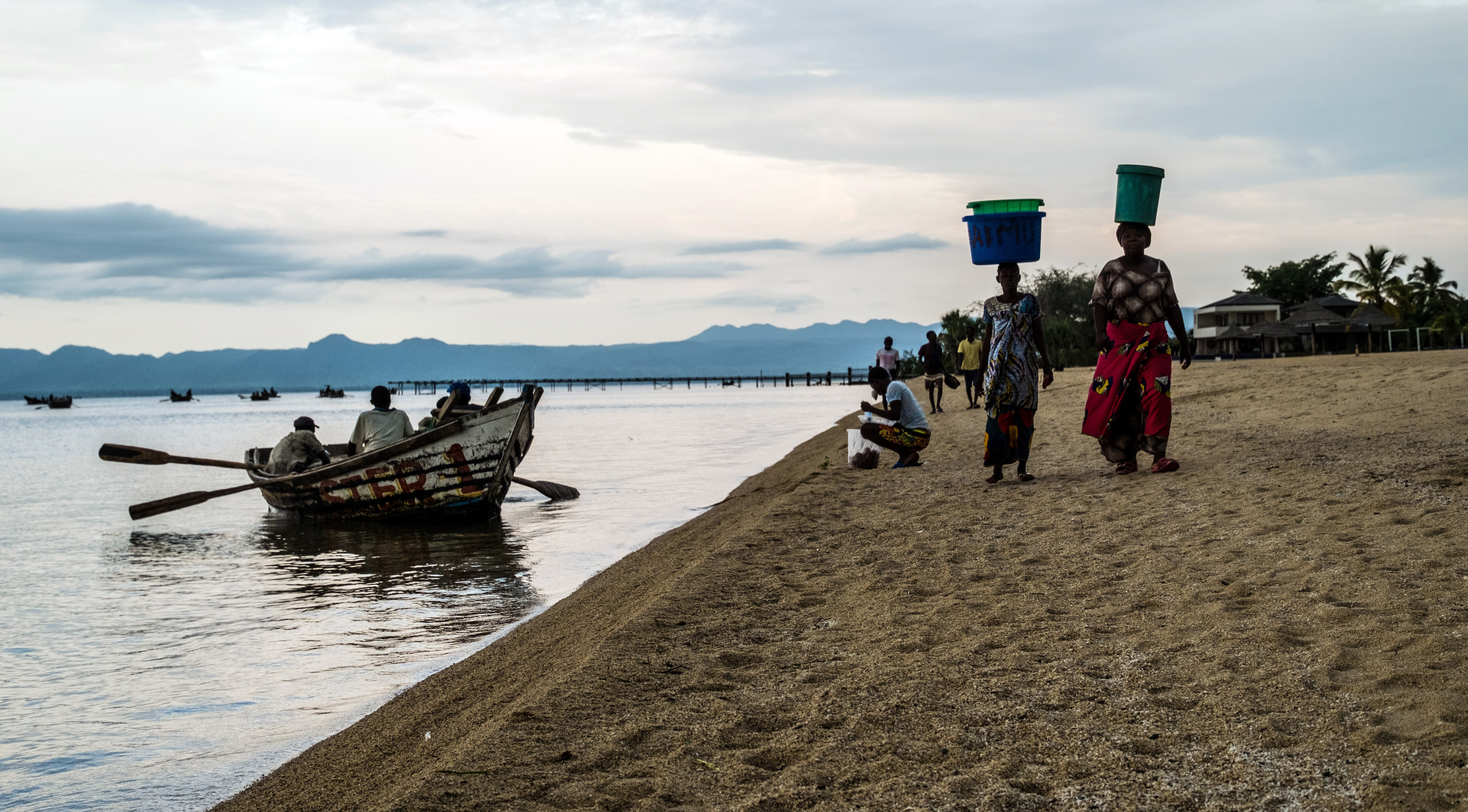
Today, more than 35,000 fishers rely on Lake Malawi for income around Mangochi. As net sizes increase so too do incomes and catch. (Photo: Richard Harper)
Rather, to the contrary, it has encouraged rent-seeking behaviour and disincentivised reforms by providing a safety net. While the donors argue against this – in part because turkeys seldom vote for Christmas, and because there are valid humanitarian concerns about cutting off aid – the evidence suggests that, at best, donor spending has made things “less bad”.
Another version of this “development through aid” argument is that you need more donor money – that the current $1-billion annually to Malawi is too little to make a difference, and simply offers a Band-Aid for what is a sucking chest wound in developmental terms.
The dangers in this approach can be seen in the catastrophic failure of projects to prove this argument, including Jeffrey Sachs’s failed Millennium Village schemes, which operated in two sites in Malawi.
A third is that change is possible, and one has to look for green shoots in Malawians themselves, in the judiciary (which held the line against the regime of President Peter Mutharika in the election re-run), in NGOs, and in the private sector. A version of this answer can be found in an initiative on Lake Malawi, designed to prevent overfishing and create a virtuous cycle of management by locals and from the bottom up.
Ripple Africa was started as a reforestation initiative by a British visitor in 2003 and within 10 years had expanded its focus to include sustainable fishing.
Overfishing and especially the uncontrolled fishing of breeding grounds and smaller usipa and chambo fish stocks had driven the situation to the brink in the eight Malawian districts dotted along the lake. As the population increased – from four million at independence, to 20 million today, and a projected 40-plus million by 2050 – the pressure on fish stocks grew, nets becoming smaller and smaller and fishing more prevalent in breeding areas.
Nothing better illustrates the folly of careless development aid than the distribution of mosquito nets. The nets, provided to stem malaria, have been – and still are – used to fish. The tiny holes in the net ensure that every small, immature fish in its path is harvested with devastating consequences for future stocks.
The answer, thought Geoff Furber, a visitor to Malawi, was not to be found in a stronger state, or centralised control, but rather in local communities getting together and thus getting better organised. It was not going to be a short-term solution either, thus one that was likely to have only limited appeal to the limited electoral mindset of politicians, local and foreign.
“It was chaos,” says Bernard Gula, a boat owner and vice-chairperson of the local Beach Village Committee in the village of Chembe in Cape Maclear, a neglected tourist favourite. “Fishing was an open-access activity. Anyone who wanted could go fishing. The community were not,” he states, “empowered to conserve; rather the power was with government, not the people.”
The fishing communities were locked in a downward, vicious cycle. The fiction of government control did not reach the communities (save in the form of expensive permitting) yet removed local ownership. Increasing population numbers ramped up pressure on fish stocks, leading to lower catches, worsening frictions between communities and with the government, and more poverty, a microcosm of what has occurred nationally.
Such declines have an especially big impact in very poor communities such as Malawi, where 83% of the country is rural based and just 10% has access to electricity. The impact of such challenges and upsets have been compounded in the case of Lake Malawi by the virtual collapse of foreign tourism on account largely of South Africa’s opening to the rest of the world after apartheid.
Visit Daily Maverick’s home page for more news, analysis and investigations
Changing this cycle had to involve a mindset change, seemingly an impossible task.
Force Ngwira was a curio carver when he met Furber at Nkatha Bay in the lake’s north. He has worked with Ripple since it was founded originally as a reforestation initiative in 2003. “Malawians,” he says, “believe in today; we don’t really care for tomorrow. This includes our view of natural resources. So we had to change this mindset.”
“We had to look after our farm, our land,” says Agnes Mpinganjira, a Beach Village Committee (BVC) member at Nsumbi at Monkey Bay, pointing to the lake, “just like we would look after our forests and our trees.”
Working (so far) with five of the eight Lakeside districts and in building 474 BVCs from the bottom up, Ripple has used a combination of carrots, transition periods and clear messaging to convince more than 35,000 “fishers” – fishermen and women – to move to bigger nets and away from breeding areas.
Every evening fleets of home-built boats row past the shore of Lake Malawi to hunt for usipa under lights and with nets. Despite the numbers, with Ripple’s measures in place the catch yields have steadily improved.
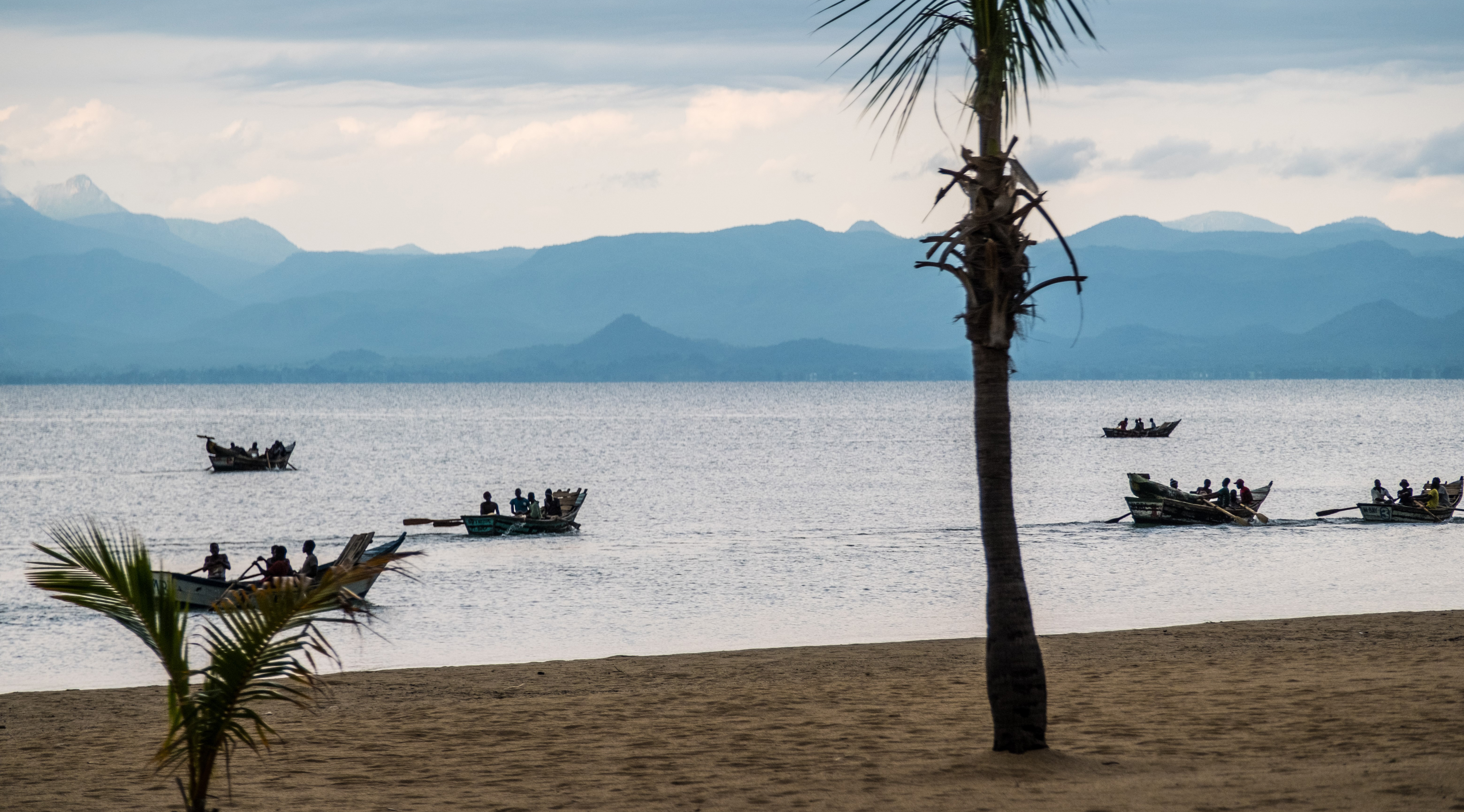
Oxford is narrowly in the lead. The evening boat race to get to their spots for Usipa. (Photo: Richard Harper)
Monthly chambo sales, for example, have increased sixfold in value since 2016. There are now 133 breeding areas under protection. While there has been a 60% drop in the volume (or “litres”) of usipa caught, the number of larger fish has increased from 46% to 70% per litre, and income by 20%.
The beaches are policed by about 5,000 BVC members – a political and governance force to be reckoned with which has to date confiscated the gear of no fewer than 1,683 “fishers”. But it’s less about threats than the incentives of change.
And Furber has stayed true to his promise of local lead. Ripple is run entirely by more than 450 Malawians, albeit on foreign donations totalling $900,000 annually (a tiny fraction of the more than $1-billion annual aid tranche).
Force Ngwira describes a positive ecological cycle which they have managed to create and sustain, where local ownership is cemented from the bottom up (rather than attempted from the top down), driven by education of local stakeholders (in this case “fishers”), with local policing, the construction of local institutions with a monitoring and policing capacity, partnerships with government departments including fisheries and wildlife, and integration over time with other sustainability measures including forestation and cooking methods.
Read in Daily Maverick: “Malawi becomes the first country to open the IMF’s new ‘Food Shock Window’”
In many other areas, externally driven efforts to reform have created incentives for actors to establish the form – but not the function – of institutions, while undermining the voice of domestic reformers.
External pressure has created a “Newtonian” reaction on the part of domestic reformers, with them moving in the opposite direction, a tendency fuelled by populist instincts and easy answers. Managed badly, too much pressure can cut off dialogue and upset relationships – and without a trusted messenger there can be no message.
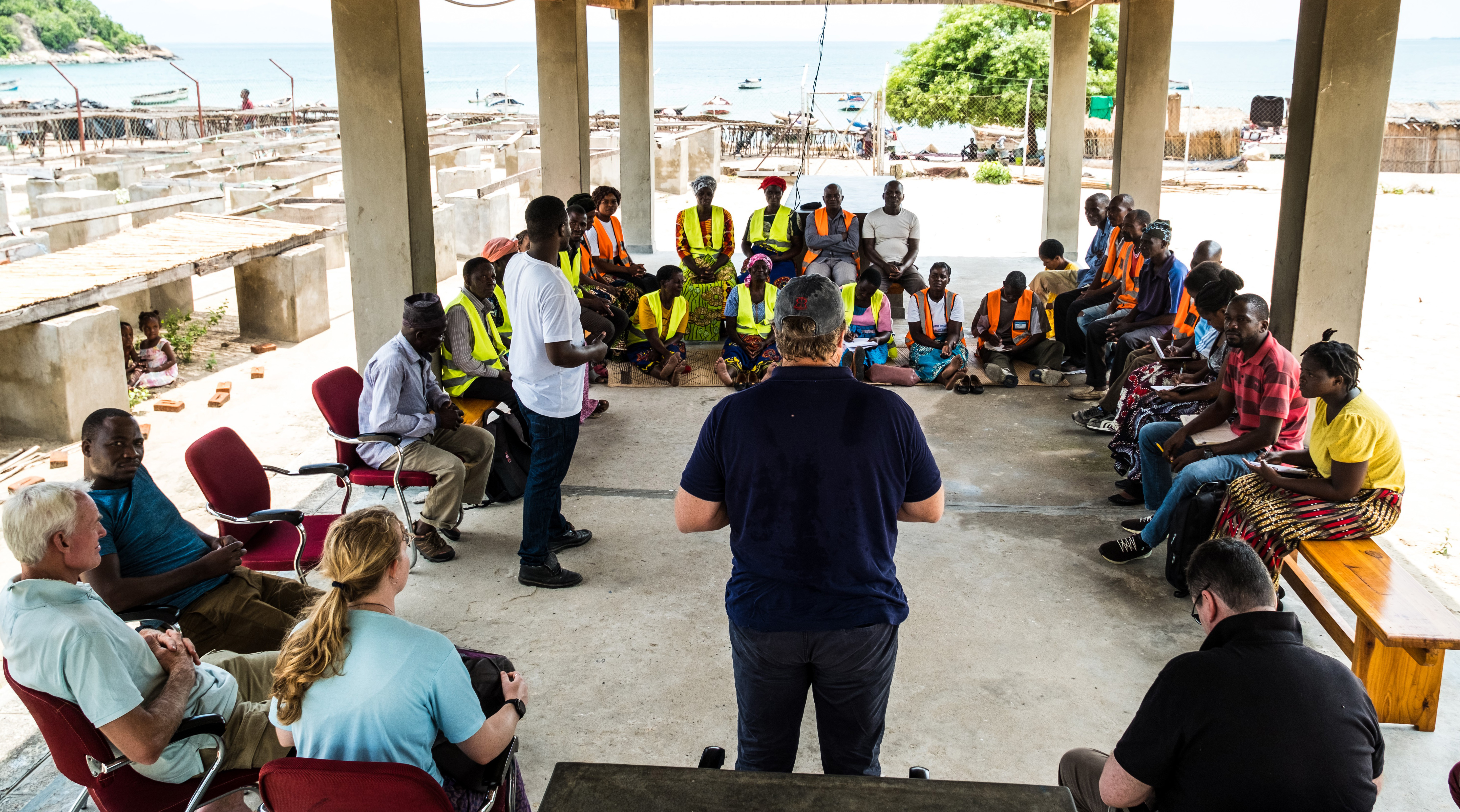
The Beach Village Committee at Nsumbi, Monkey Bay. (Photo: Richard Harper)
The Ripple experience highlights the importance of getting the incentives right, of the need for local buy-in, and of the complementary role that can, in the right conditions, be played by outsiders.
Ripple shows that by starting small, strengthening local voices in the places where change is needed, and by sticking with it over a long time, the most desperate and seemingly impossible of circumstances can be changed.
If outsiders can do this, and avoid amplifying their own voices to advance their own careers and interests, then trust can be enhanced and progress made.
And in Malawi this requires a leadership capable not only of pinpointing the problems, but prioritising and executing the solutions, being able to avoid self-defeating (if populist) economic choices (such as the Land Reform Act, which effectively takes away land from foreigners, or banning the export of maize), and being willing to let go of control – or at least share in the benefits of change.
“Let go to get going” is the message for governments, local and foreign. DM
Dr Mills has been in Malawi. www.thebrenthurstfoundation.org
















 Become an Insider
Become an Insider
It seems as if their government is just like the ANC or the ANC like theirs. Why is it that Africa, for the most, just care more about an elite group of politicians/government/party than their fellow citizens.
It beggars belief.
And just like in SA the poor and uneducated keep them in power.